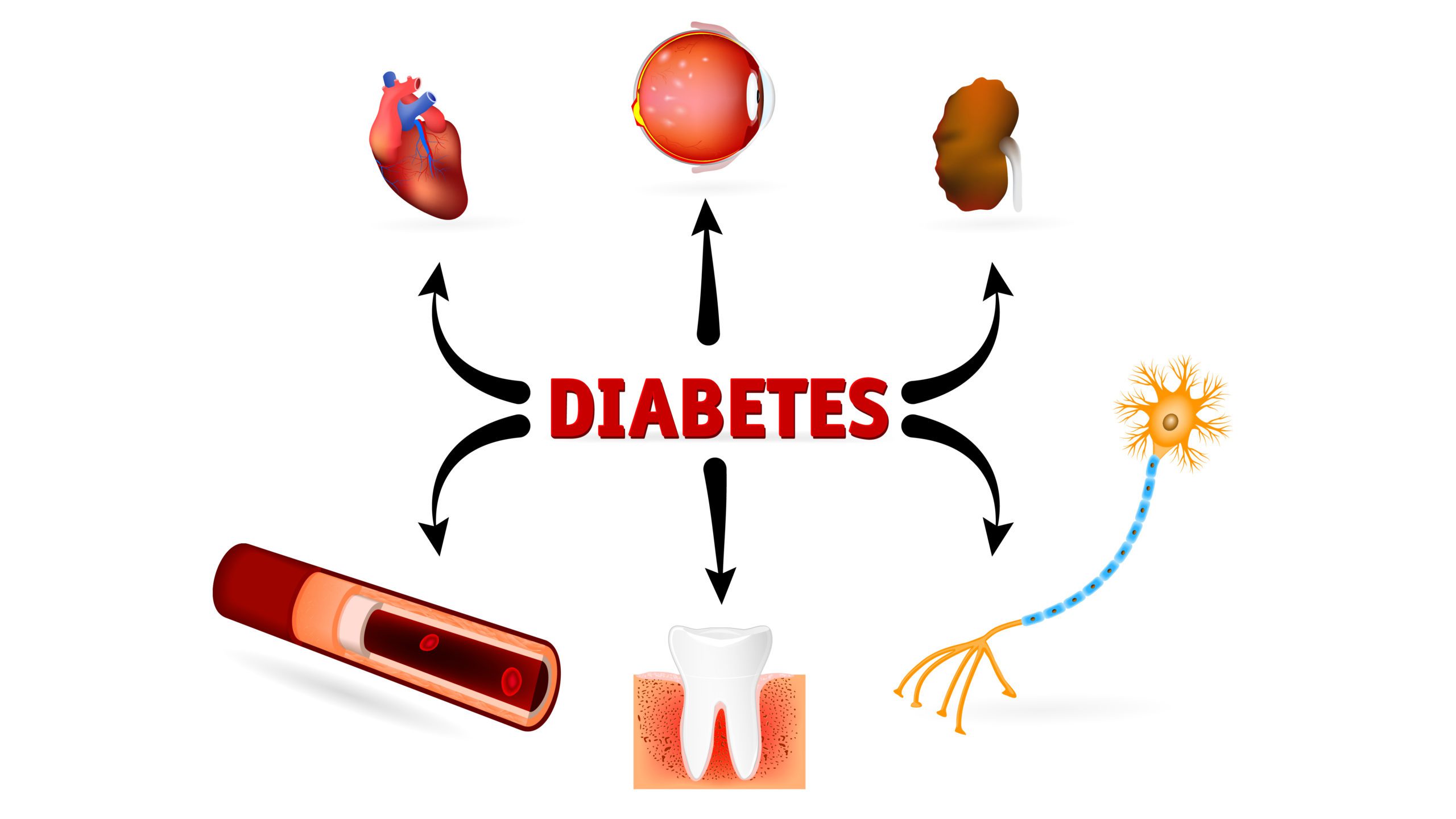Diabetes does not come alone. It can cause various complications such as diabetic angiopathy, neuropathy, nephropathy, retinopathy and other. They develop gradually and risks of developing them increase if you have diabetes for a long time or do not control your blood sugar levels. When not treated, diabetes complications may become severe and even life-threatening.
Elevated blood sugar levels over a long time can seriously damage blood vessels. If that happens, some parts of the body will have disrupted blood supply. Nervous tissue is very susceptible to such changes and therefore can be easily damaged by that. If your nerves do not work properly, you may lose feeling in parts of the body, especially in your legs. Patients with this problem experience tingling, numbness, burning, or pain that usually starts at the tips of the toes or fingers and gradually spreads upward. If untreated, there is a chance to lose sensitivity in the affected limbs. Damage to the nerves related to digestion can cause digestive problems such as nausea, vomiting, diarrhea, or constipation. For men, nerve damage can lead to erectile dysfunction.
Having diabetes also increases the risk of having kidney problems. It happens because high blood sugar levels can make the blood vessels in the kidneys become leaky or stop working correctly. Severe damage can cause kidney failure or irreversible end-stage kidney disease that requires dialysis or a kidney transplant. Similarly, high blood sugar can damage blood vessels in the eyes and cause retinopathywhich potentially leads to blindness. Diabetes also increases the risk of other vision conditions like cataracts and glaucoma.
Another problem that high blood sugar levels can cause is blocking the blood vessels to your brain, putting you at risk of a stroke. Blood vessels around the heart can also be damaged by high blood sugars in addition to high blood pressure and increased cholesterol. Diabetes dramatically increases the risk of different cardiovascular conditions, including coronary artery disease, heart attack, stroke, and atherosclerosis (narrowing arteries).
Complications of diabetes are not inevitable. Controlling blood sugar, blood pressure, and blood fats levels is an effective way to reduce the risk of developing complications. In addition, giving up smoking is the best thing you can do to help yourself because smoking makes it even harder for blood to flow around your body. It is also recommended to have regular diabetes health checks and learn about the ways to manage the condition by yourself. Depending on the type and severity of the problem, various therapies can be prescribed.
More details:
Prediabetes and measures of prophylaxis
Differences between type 1 and type 2 diabetes
Causes, mechanisms of the disease development and symptoms (Diabetes mellitus type 1)
Causes, mechanisms of the disease development and symptoms (Diabetes mellitus type 2)
















Leave a Reply
You must be logged in to post a comment.